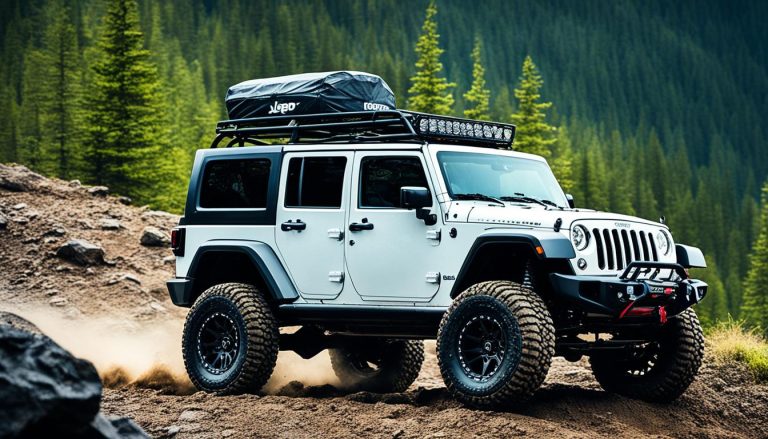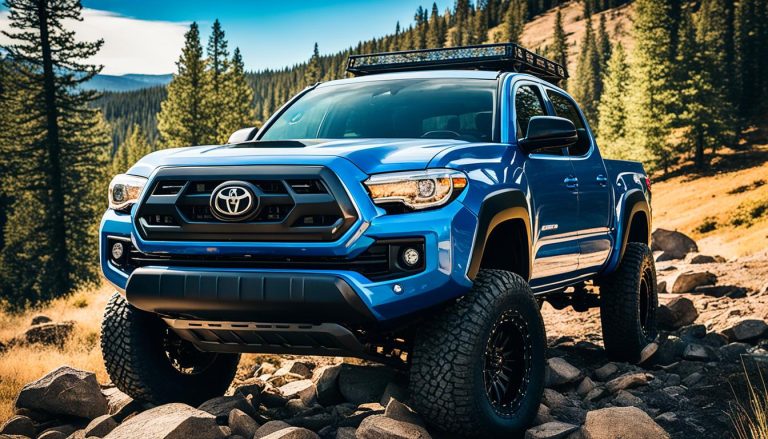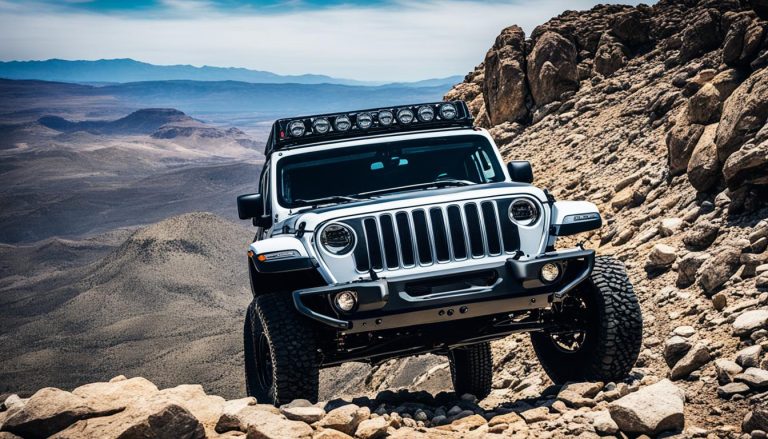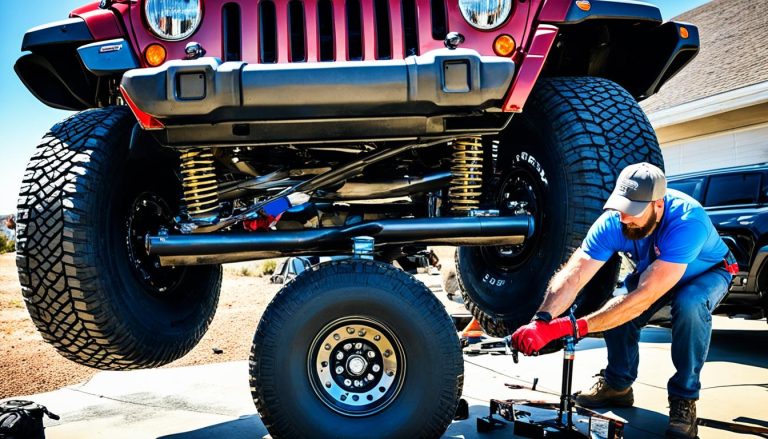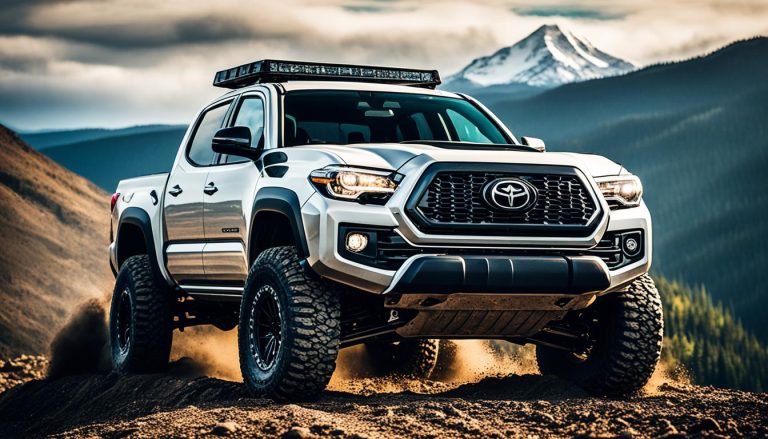Lift Kits Impact on Toyota Warranty Explained
Installing a lift kit on your Toyota may raise concerns about warranty coverage. Many Toyota owners wonder, “Do lift kits void the warranty on my Toyota?” The good news is that according to the Magnusson Moss Act of 1975, aftermarket parts, including lift kits, do not automatically void the warranty. This Act states that the dealership must prove that the aftermarket part caused the failure in order to deny warranty coverage. So, you can enjoy the benefits of a lift kit without worrying about voiding your Toyota warranty.
However, it’s important to note that certain parts, such as wheel bearings and differentials, may have a higher potential for impacting the warranty. These components are directly affected by the lift kit and may require additional scrutiny when it comes to warranty claims.
Challenging any warranty denials and understanding the specific details of your warranty coverage is essential. By knowing your rights as a consumer, you can confidently navigate the world of lift kits and ensure that you’re making an informed decision for your Toyota.
Key Takeaways:
- Installing a lift kit on your Toyota does not automatically void the warranty.
- The dealership must prove that the aftermarket part caused the failure in order to deny warranty coverage.
- Certain components directly affected by the lift kit, like wheel bearings and differentials, may have more potential for impacting the warranty.
- Challenging warranty denials and understanding your specific warranty coverage is crucial.
How Lift Kits Affect Warranty Coverage
When it comes to your Toyota’s warranty coverage, installing a lift kit can have an impact on certain components of your vehicle. Understanding how lift kits affect the warranty is crucial, so let’s dive into the details.
If an issue arises with parts that are directly affected by the lift kit, such as suspension components or driveline angles, the warranty may not cover the repairs. These components are typically considered modifications and may be excluded from warranty coverage due to their altered condition.
However, it’s important to note that other unrelated issues that are not directly caused by the lift kit should still be covered under the original warranty. Regular wear and tear, factory defects, or issues with non-modified components should not be affected by the presence of a lift kit.
To help you visualize the impact of lift kits on warranty coverage, refer to the table below:
table {
margin: auto;
border-collapse: collapse;
width: 80%;
}
th, td {
text-align: left;
padding: 8px;
}
tr:nth-child(even){background-color: #f2f2f2}
th {
background-color: #4CAF50;
color: white;
}
| Issue | Warranty Coverage |
|---|---|
| Suspension component failure due to lift kit | No coverage |
| Driveline angle-related issues caused by lift kit | No coverage |
| Regular wear and tear on non-modified components | Covered |
| Factory defects unrelated to lift kit | Covered |
Remember that warranty coverage may vary depending on the specific details of your warranty agreement. It’s always a good idea to consult with your dealership and carefully review your warranty documents to have a clear understanding of how lift kits may affect your coverage.
Note: The image below shows a lifted Toyota vehicle as an example.
Dealership Perspectives on Lift Kits and Warranty
When it comes to lift kits and warranty coverage, dealerships may have differing viewpoints. Some dealerships offer their own warranty coverage for in-house lift kit installations. This means that if any issues arise as a result of the lift kit, the dealership will be responsible for addressing those issues rather than the manufacturer. It provides an added level of assurance and support for lift kit owners.
However, it’s important to note that modifications made outside of the dealership, such as aftermarket lift kits, may not be covered under the original Toyota warranty or any extended warranties. This variation in coverage highlights the importance of understanding the specifics of your warranty and seeking clarification from your dealership.
Forming a good relationship with your dealership and service department is crucial when it comes to lift kits and warranty claims. While Toyota may not have legal rights to fix or cover non-OEM modifications, a dealer with whom you have a positive connection may be more willing to work with you and provide coverage for issues related to the lift kit. Establishing trust and open communication will facilitate smoother warranty claims and potentially expand coverage for lift kit-related concerns.
Overall, considering dealership perspectives on lift kits and warranty coverage is essential for both understanding the potential support available and ensuring you are aware of any limitations. The next section explores the importance of building strong dealer relationships in more detail.
The Importance of Good Dealer Relationships
When it comes to lift kits and warranty claims, having a good relationship with your dealership and service department can make a difference. While Toyota may not have legal rights to fix or cover non-OEM modifications, a dealer with a positive relationship may be more willing to work with you and provide coverage for issues related to a lift kit.
Building a strong rapport with your dealer can help facilitate smoother warranty claims and potentially lead to coverage for lift kit-related issues. Some dealerships might even offer their own coverage for aftermarket modifications like lift kits, although it’s important to note that this coverage is specific to the dealership and may not be backed by the manufacturer.
By maintaining a good dealer relationship, you can increase your chances of receiving support and assistance when it comes to navigating the complexities of warranty coverage and lift kits.
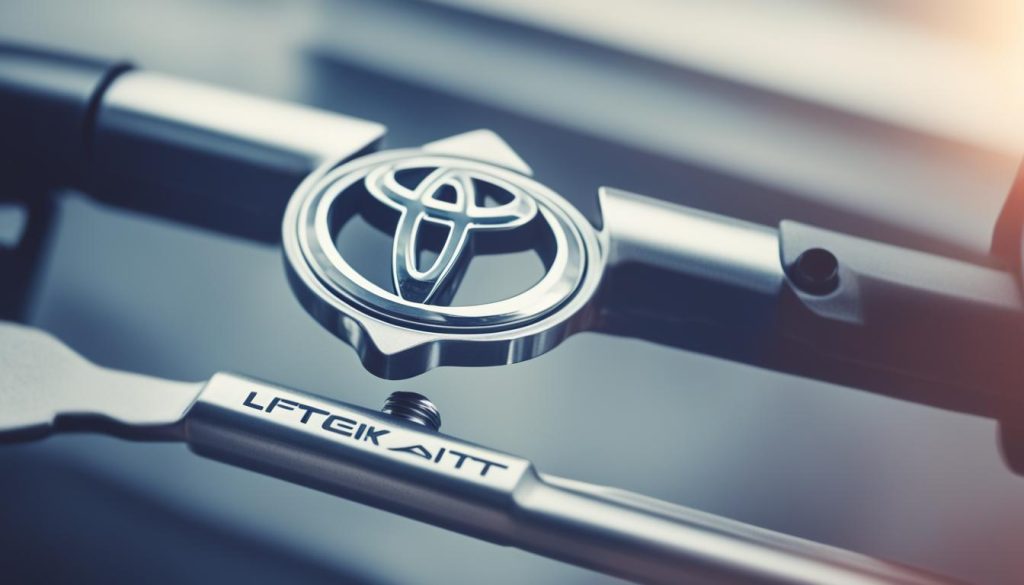
| Benefits of a Good Dealer Relationship | Key Takeaways |
|---|---|
|
|
The Limitations of Warranty Coverage
When it comes to lift kits and other aftermarket modifications, it’s essential to have a clear understanding of the limitations of warranty coverage. While some issues that arise from a lift kit may not be covered under the original warranty, it’s important to note that the entire warranty is not voided. The warranty may still cover unrelated issues, and it’s crucial to distinguish between problems caused directly by the lift kit and those that are unrelated.
For example, if you have a lift kit installed by the dealer, they may offer their own warranty coverage for any lift kit-related issues. However, it’s important to keep in mind that issues related to non-OEM modifications may not be covered by the manufacturer’s warranty.
To ensure that you fully understand the warranty coverage for your lifted vehicle, it’s advisable to consult your dealership and review the terms and conditions of your warranty carefully.
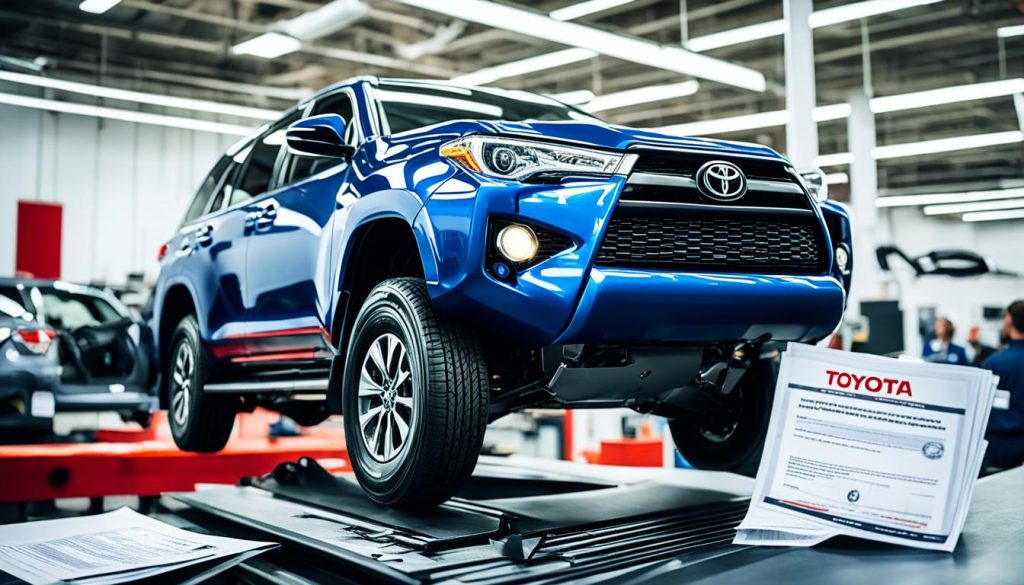
| Warranty Type | Coverage for Lift Kit-Related Issues | Coverage for Non-OEM Modifications |
|---|---|---|
| Manufacturer’s Warranty | May not cover lift kit-related issues | Does not cover non-OEM modifications |
| Dealership Warranty | May offer coverage for lift kit-related issues | May offer coverage for non-OEM modifications |
As shown in the table above, the coverage for lift kit-related issues and non-OEM modifications can vary depending on the type of warranty. It’s important to have a clear understanding of your warranty coverage and any additional warranties provided by the dealership.
In summary, while warranty coverage for lift kits may have limitations, it’s crucial to distinguish between issues caused directly by the lift kit and those that are unrelated. By consulting with your dealership and reviewing your warranty documents, you can ensure that you are aware of the coverage for your lifted vehicle and make informed decisions regarding warranty claims.
The Magnusson Moss Warranty Act
The Magnusson Moss Warranty Act is a crucial piece of legislation that protects consumers when it comes to aftermarket modifications and their impact on warranty coverage, including lift kits for Toyota vehicles. Under this act, dealerships are required to provide proof that a specific aftermarket part, such as a lift kit, directly caused a failure in order to deny warranty coverage.
This means that if an issue arises with your vehicle that is unrelated to the lift kit, your warranty should still be valid and applicable. The burden of proof rests on the dealership to demonstrate that the aftermarket modification caused the failure before they can deny coverage.
As a consumer, it’s important to familiarize yourself with the provisions of the Magnusson Moss Warranty Act and understand your rights. This act provides you with assurance that your warranty cannot be automatically voided simply because you have installed a lift kit or another aftermarket modification on your Toyota vehicle.
By knowing your rights and understanding the protections afforded to you by the Magnusson Moss Warranty Act, you can confidently explore lift kit options for your Toyota knowing that your warranty should remain intact for unrelated issues.
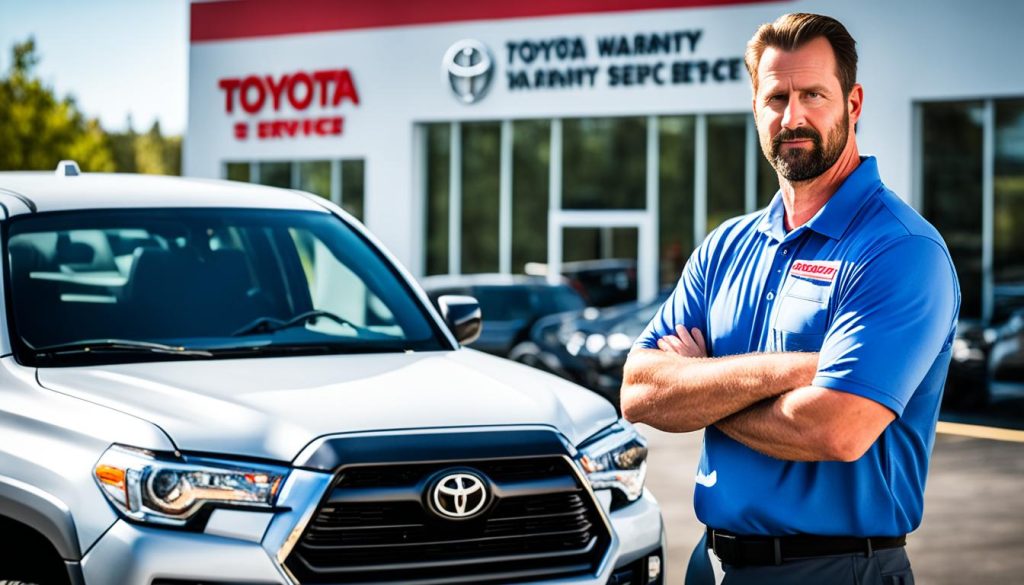
Key Takeaways:
- The Magnusson Moss Warranty Act prevents dealerships from automatically voiding your warranty due to aftermarket modifications like lift kits.
- Dealerships must prove that the lift kit or other aftermarket part caused the failure in order to deny warranty coverage.
- Your warranty should still be valid for unrelated issues that may arise with your Toyota vehicle.
- It’s important to familiarize yourself with the provisions of the Magnusson Moss Warranty Act to understand your rights as a consumer.
Understanding Your Warranty Terms
When considering the installation of a lift kit on your vehicle, it’s essential to understand how it may impact your warranty coverage. The terms of every vehicle warranty can vary, so taking the time to review the specific details is crucial in making an informed decision.
Some warranty agreements explicitly exclude coverage for modifications such as lift kits. In these cases, any issues related to the lift kit may not be covered under the warranty. However, there are warranties that offer coverage for aftermarket modifications with certain limitations. Familiarizing yourself with your warranty terms will help you determine the extent of coverage and any potential impacts on warranty claims.
By understanding your warranty terms, you can make an educated choice about installing a lift kit and be fully aware of how it may affect your warranty coverage. Whether your warranty excludes lift kits or allows for coverage with limitations, knowing the specifics empowers you to make the best decision for your vehicle and your needs.
FAQ
Do lift kits void the Toyota warranty?
Installing a lift kit on your Toyota does not automatically void the warranty. The dealership must prove that the aftermarket part caused the failure in order to deny warranty coverage.
How does installing a lift kit affect warranty coverage?
If an issue arises with parts directly affected by the lift kit, such as suspension components or driveline angles, the warranty may not cover the repairs. However, unrelated issues should still be covered under the original warranty.
What is the perspective of dealerships on lift kits and warranty coverage?
Dealerships may offer their own warranty coverage for in-house lift kit installations. However, modifications made outside of the dealership may not be covered by the original Toyota warranty or any extended warranties.
How important is having a good relationship with the dealership for lift kits and warranty claims?
Building a good relationship with your dealer can help facilitate smoother warranty claims and potential coverage for lift kit-related issues. While Toyota may not have legal rights to fix or cover non-OEM modifications, a positive relationship with the dealer may increase the likelihood of coverage.
What are the limitations of warranty coverage when it comes to lift kits?
Some issues that arise from a lift kit may not be covered under the original warranty, but it doesn’t necessarily void the entire warranty. Issues related to the lift kit may be covered under the dealership’s own warranty, but non-OEM modifications may not be covered by the manufacturer’s warranty.
What is the Magnusson Moss Warranty Act and how does it apply to lift kits?
The Magnusson Moss Warranty Act requires dealerships to prove that a specific aftermarket part caused the failure in order to deny warranty coverage. This act helps protect consumers by ensuring that aftermarket modifications, including lift kits, do not automatically void a warranty.
How can I understand my warranty terms when it comes to lift kits?
Every vehicle warranty is different, so it’s crucial to review the specific terms of your warranty to understand how lift kits may impact coverage. Some warranties may exclude coverage for modifications like lift kits, while others may offer coverage with certain limitations.

